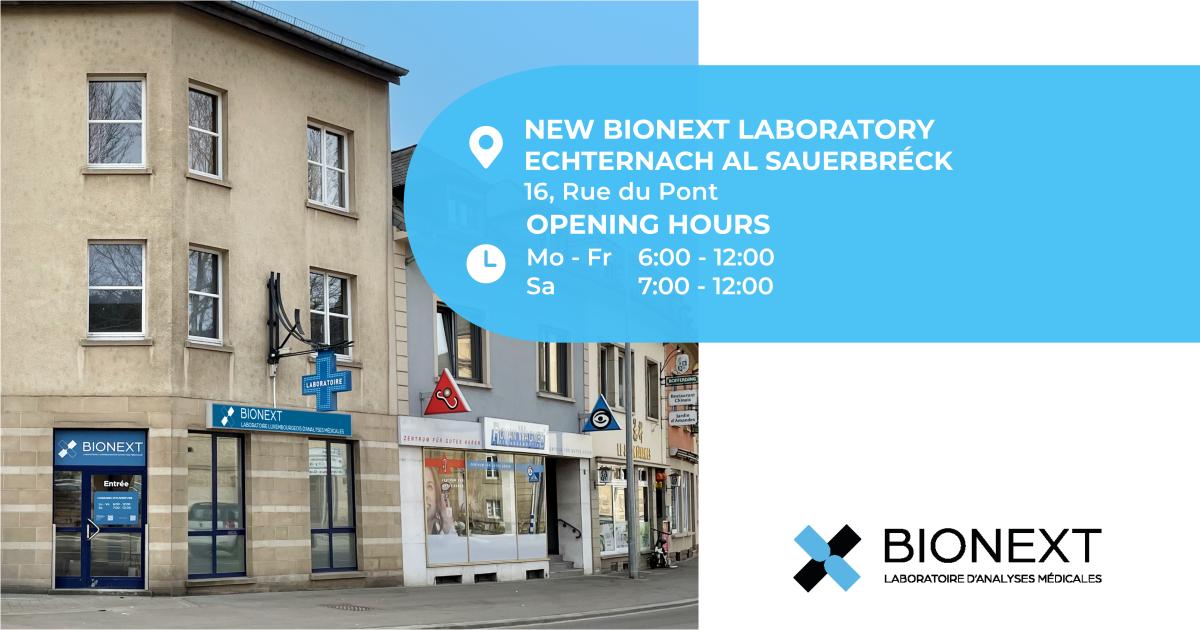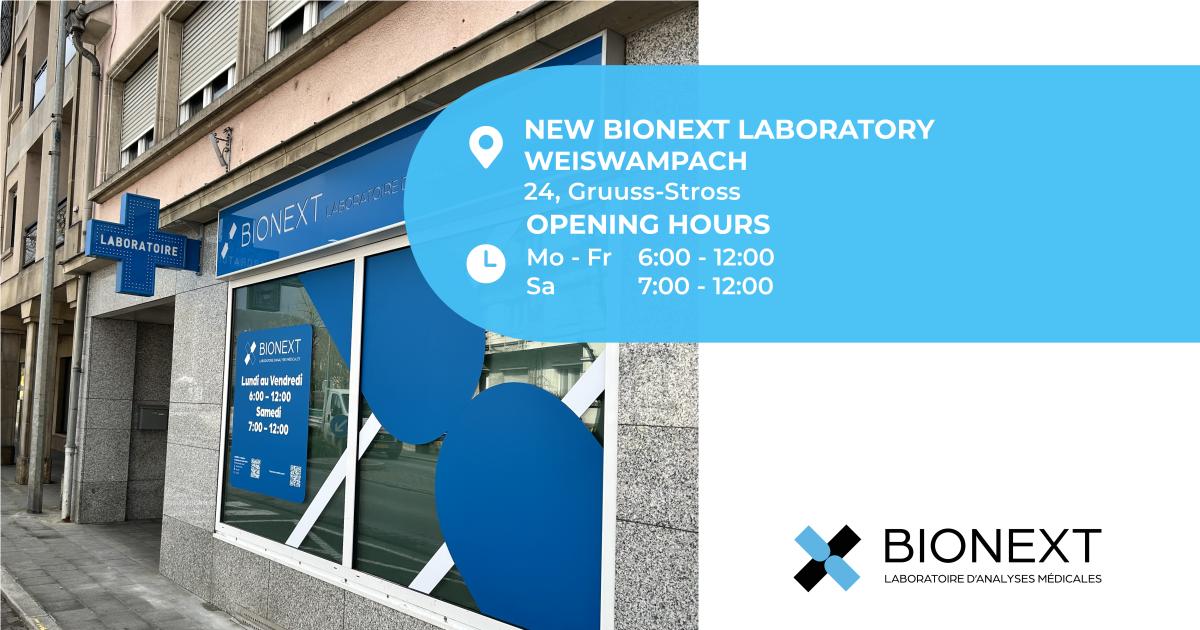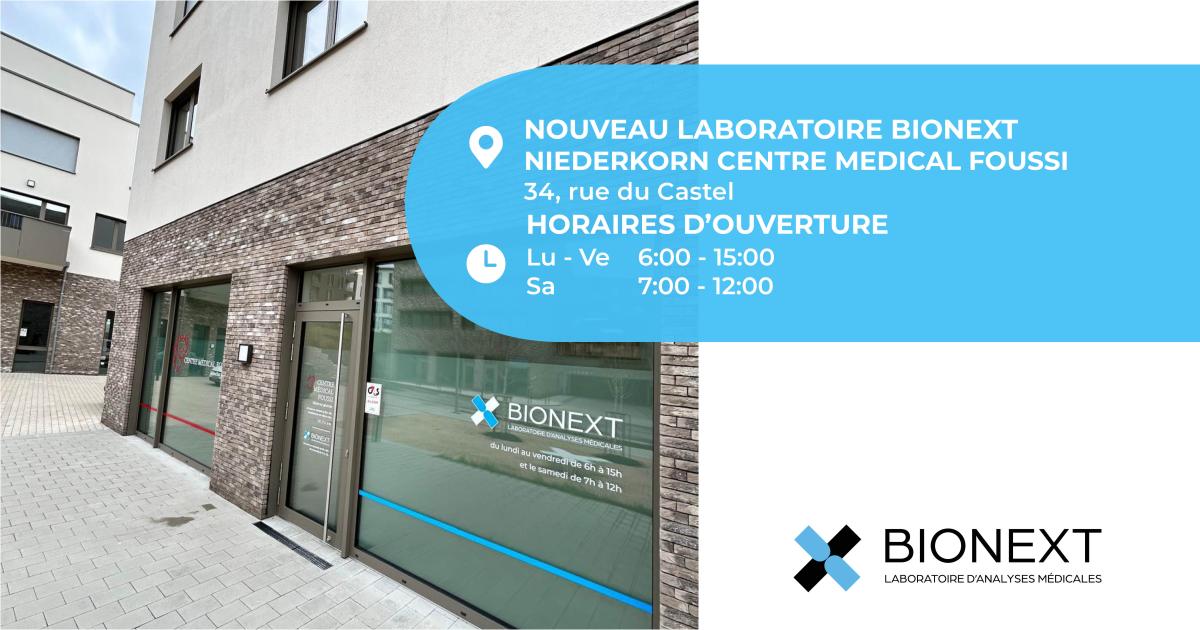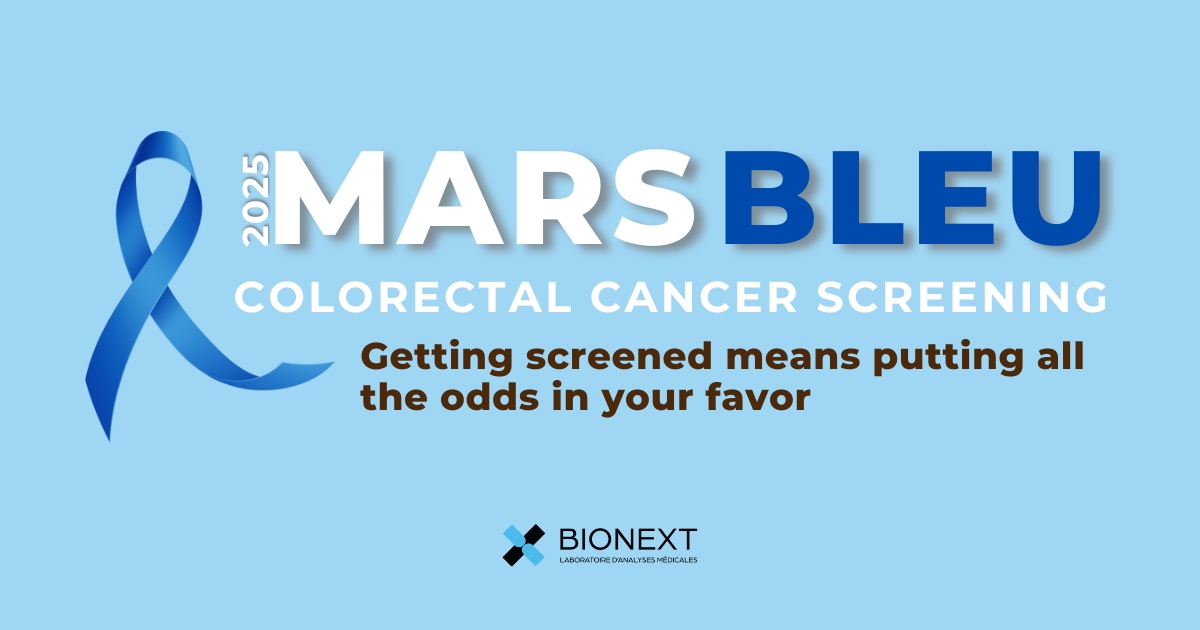
March has turned blue, becoming a month dedicated to colorectal cancer awareness, prevention and screening.
Every year, around 22,000 people in Europe are diagnosed with colorectal cancer, a figure that is constantly rising. In Luxembourg, colorectal cancer is the second most deadly cancer1, after lung cancer2. Yet in 9 out of 10 cases, it can be cured if detected early.
That's why Luxembourg has had an Organized Colorectal Cancer Screening Program (PDOCCR) since 2021. Since 2024, BIONEXT has been the reference laboratory for this program. As such, we are fully committed to sample management and analysis, but also to colorectal cancer awareness and prevention.
Informing people about colorectal cancer, the primary objective of Blue March
Put an end to preconceived ideas!
- - Colorectal cancer doesn't just affect men
- - Screening is not painful
- - Absence of symptoms does not mean absence of cancer
- - While heredity plays a role, other factors such as alcohol consumption increase the risk of developing cancer
- - It's never too late for screening: detected early, colorectal cancer can be cured in 90% of cases
Public information is therefore a key lever in the fight against colorectal cancer. Being better informed makes it easier to adopt preventive measures and take part in the screening program.
What is colorectal cancer?
Colorectal cancer is a cancerous pathology of the large intestine, which can affect any part of the body. Most colorectal cancers develop from a benign lesion known as a polyp. Over time, the polyp cells can acquire mutations and become cancerous cells. This takes about 10 years.
Colorectal cancer in a few key figures:
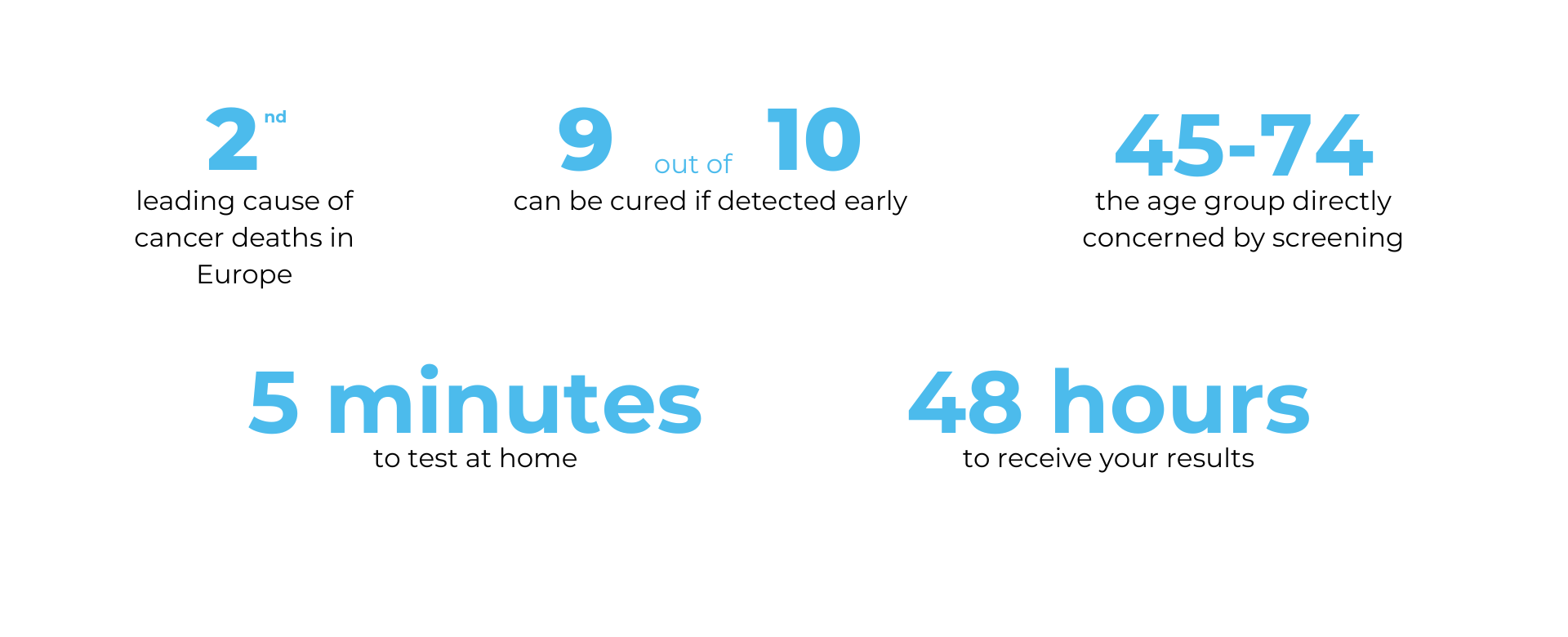
Screening is the key to reducing risk and increasing chances of remission
The importance of early detection
Pre-cancerous lesions and cancer cells tend to bleed. This bleeding is often microscopic and mixed with stool. This is why screening involves looking for the presence of blood in the stool.
The colorectal cancer screening test (FIT test) is highly sensitive and can detect even minimal bleeding, thus enabling early detection of lesions that could become cancerous.
❌ A negative test can therefore reassure us that there are no lesions. However, it's important to repeat the test every 2 years: regular monitoring ensures that precancerous lesions are detected.
✅ A positive test does not necessarily mean colorectal cancer. Blood may be present in the stool for other reasons (hemorrhoids, inflammatory bowel disease, etc.). A positive test should therefore be followed by a colonoscopy, depending on the context, to visualize potential lesionss.
PDOCCR in Luxembourg
This program is open to all people aged between 45 and 74 who are affiliated to the CNS. It therefore concerns both Luxembourg residents and non-residents. The CNS covers the cost of screening.
To find out more about this program, please visit our PDOCCR page. You can also visit the websites of the Ministère de la Santé et de la Sécurité Sociale, the Caisse Nationale de Santé or follow associations such as the Fondation Cancer.
Best practices for limiting the risk of colorectal cancer
While regular check-ups and screening are essential, colorectal cancer is largely preventable by adopting healthy lifestyle habits. A balanced diet, regular exercise and regular medical check-ups can all significantly reduce the risk of developing this disease.
How do diet and lifestyle reduce the risk of developing cancer?
Diet plays a key role in preventing colorectal cancer. Here are a few simple dietary habits that reduce the risk of developing colorectal cancer:
- - Favoring fruits, vegetables and whole grains: these foods promote healthy intestinal transit and reduce inflammation of the colon.
- - Limit consumption of red and processed meats: deli meats, sausages and other industrial meats contain additives and nitrites that increase the risk of colorectal cancer.
- - Favoring good fats: vegetable oils (olive), nuts and fish rich in omega-3 have a protective effect.
Physical activity is also a major protective factor. Regular exercise helps regulate metabolism, prevent weight gain and reduce chronic inflammation. At least 30 minutes of exercise a day is recommended, whether brisk walking, swimming, cycling or any other sport.
Finally, tobacco and alcohol consumption are major risk factors. Tobacco promotes the development of polyps in the colon, and alcohol, in large quantities, is directly linked to an increased risk of colorectal cancer. Reducing or even eliminating consumption of these substances is therefore strongly recommended.
🔎 Things to remember
Colorectal cancer is a disease that can be effectively combated thanks to three pillars: information, screening and primary prevention.
- Staying informed helps you better understand what's at stake and adopt the right reflexes.
- Screening, by detecting the disease at an early stage, considerably increases the chances of recovery.
- Adopting a healthy lifestyle significantly reduces the risk of developing this cancer.
The fight doesn't stop with Blue Mars. Everyone has a role to play in raising awareness among those around them. Talking about screening, sharing good practices and encouraging friends and family to consult their doctor are simple gestures that can save lives.
Mars Bleu isn't just one month in the year: it's a daily commitment to prevention and health for all. 💙
2/ Les taux de mortalité par cancer au Luxembourg affichent des tendances décroissantes prometteuses, Luxembourg Institute of Health
